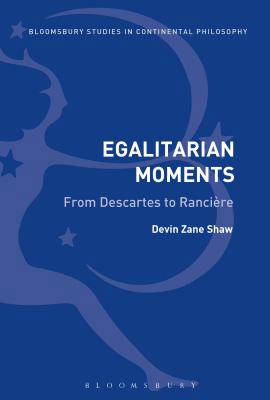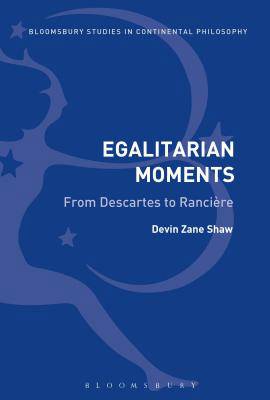
Bedankt voor het vertrouwen het afgelopen jaar! Om jou te bedanken bieden we GRATIS verzending (in België) aan op alles gedurende de hele maand januari.
- Afhalen na 1 uur in een winkel met voorraad
- In januari gratis thuislevering in België
- Ruim aanbod met 7 miljoen producten
Bedankt voor het vertrouwen het afgelopen jaar! Om jou te bedanken bieden we GRATIS verzending (in België) aan op alles gedurende de hele maand januari.
- Afhalen na 1 uur in een winkel met voorraad
- In januari gratis thuislevering in België
- Ruim aanbod met 7 miljoen producten
Zoeken
Omschrijving
Jacques Rancière's work has challenged many of the assumptions of contemporary continental philosophy by placing equality at the forefront of emancipatory political thought and aesthetics. Drawing on the claim that egalitarian politics persistently appropriates elements from political philosophy to engage new forms of dissensus, Devin Zane Shaw argues that Rancière's work also provides an opportunity to reconsider modern philosophy and aesthetics in light of the question of equality. In Part I, Shaw examines Rancière's philosophical debts to the 'good sense' of Cartesian egalitarianism and the existentialist critique of identity. In Part II, he outlines Rancière's critical analyses of Walter Benjamin and Clement Greenberg and offers a reinterpretation of Rancière's debate with Alain Badiou in light of the philosophical differences between Schiller and Schelling.
From engaging debates about political subjectivity from Descartes to Sartre, to delineating the egalitarian stakes in aesthetics and the philosophy of art from Schiller to Badiou, this book presents a concise tour through a series of egalitarian moments found within the histories of modern philosophy and aesthetics.
From engaging debates about political subjectivity from Descartes to Sartre, to delineating the egalitarian stakes in aesthetics and the philosophy of art from Schiller to Badiou, this book presents a concise tour through a series of egalitarian moments found within the histories of modern philosophy and aesthetics.
Specificaties
Betrokkenen
- Auteur(s):
- Uitgeverij:
Inhoud
- Aantal bladzijden:
- 224
- Taal:
- Engels
- Reeks:
Eigenschappen
- Productcode (EAN):
- 9781350037878
- Verschijningsdatum:
- 18/05/2017
- Uitvoering:
- Paperback
- Formaat:
- Trade paperback (VS)
- Afmetingen:
- 156 mm x 234 mm
- Gewicht:
- 317 g

Alleen bij Standaard Boekhandel
+ 176 punten op je klantenkaart van Standaard Boekhandel
Beoordelingen
We publiceren alleen reviews die voldoen aan de voorwaarden voor reviews. Bekijk onze voorwaarden voor reviews.









